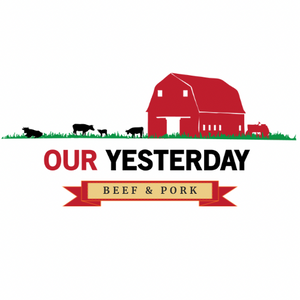We Practice Sustainable Farming
Our first and second generations, Noah and John Schrock set a high standard for sustainable farming practices. As their stationery below reveals, they were early champions of soil conservation. We continue these practices on our farms. 
The average family farm at the turn of the 20th century produced over 100 crops, but today that number is 12 or less. This type of monoculture farming has damaged the soil and reduced the richness of the overall "farm life” experience. Our Yesterday Farm values and respects both, which is why we continue to work to keep our enterprise the healthy and interdependent farm our forebearers established in Southeast Iowa.
We plant cover crops on 50% of our land. This provides rich grazing for cows in the spring and fall. The root systems of such crops allow the retention of more rainfall on the land. Additionally, after the crop is harvested, cover crops help to keep the nutrients at the top of the soil. This makes them more readily available for the next growing season. However, the biggest benefit of cover crops is to prevent soil erosion. We use a variety of cover crops, including turnips and radishes, but the main ones are cereal rye and winter wheat.
We also continue to make use of rotational grazing, which further benefits the animals and the land. This practice reduces fertilizer costs, and we can graze more cattle without taxing the land. When a field is left idle, more species of grass and legumes grow. We have 5 fields that are typically timothy, orchard grass, alfalfa, and several kinds of clover. They range from 6-30 acres in size.
